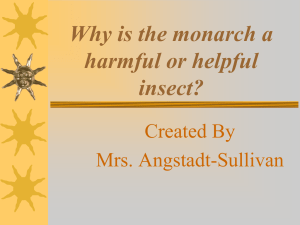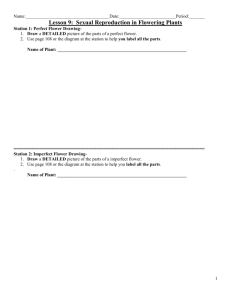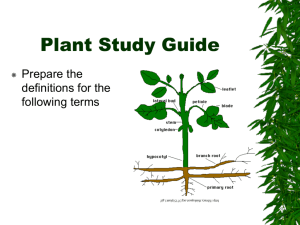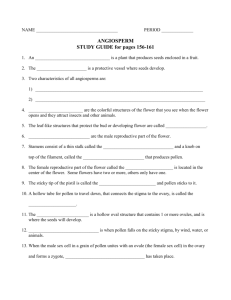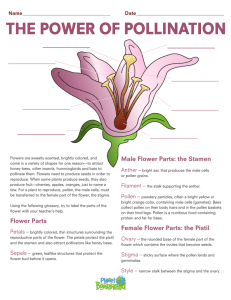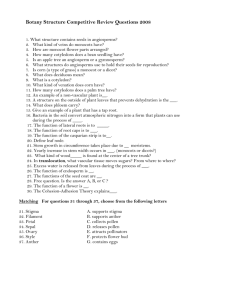Petal
advertisement
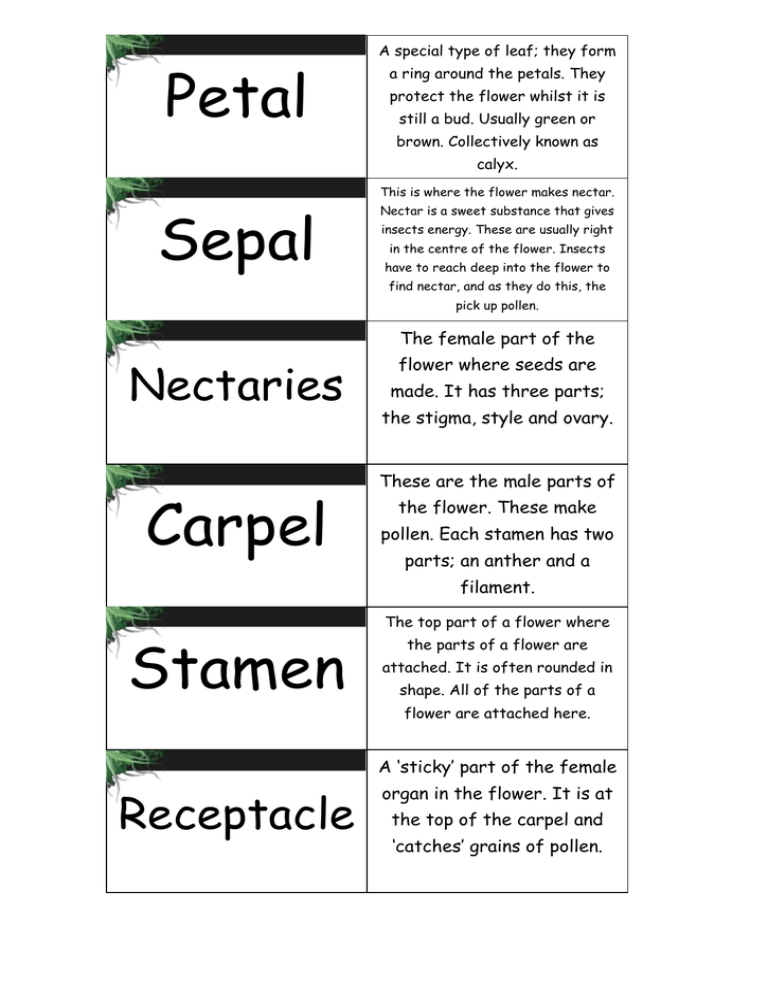
Petal A special type of leaf; they form a ring around the petals. They protect the flower whilst it is still a bud. Usually green or brown. Collectively known as calyx. Sepal This is where the flower makes nectar. Nectar is a sweet substance that gives insects energy. These are usually right in the centre of the flower. Insects have to reach deep into the flower to find nectar, and as they do this, the pick up pollen. The female part of the Nectaries Carpel flower where seeds are made. It has three parts; the stigma, style and ovary. These are the male parts of the flower. These make pollen. Each stamen has two parts; an anther and a filament. Stamen The top part of a flower where the parts of a flower are attached. It is often rounded in shape. All of the parts of a flower are attached here. A ‘sticky’ part of the female Receptacle organ in the flower. It is at the top of the carpel and ‘catches’ grains of pollen. Stigma Style Ovary Anther Filament Pollen travels down here to the ovary. The pollen joins with ovules and seeds are made. This is called fertilisation. The top part of the male organ. This is where the pollen is found. Bees and other insects ‘collect’ pollen from here and travel to other plants and ‘drop’ it on the stigma of other plants; this is pollination. A long, thin part of the male organ in a flower. It holds up the Anther. Brightly coloured to attract insects such as bees and butterflies.
